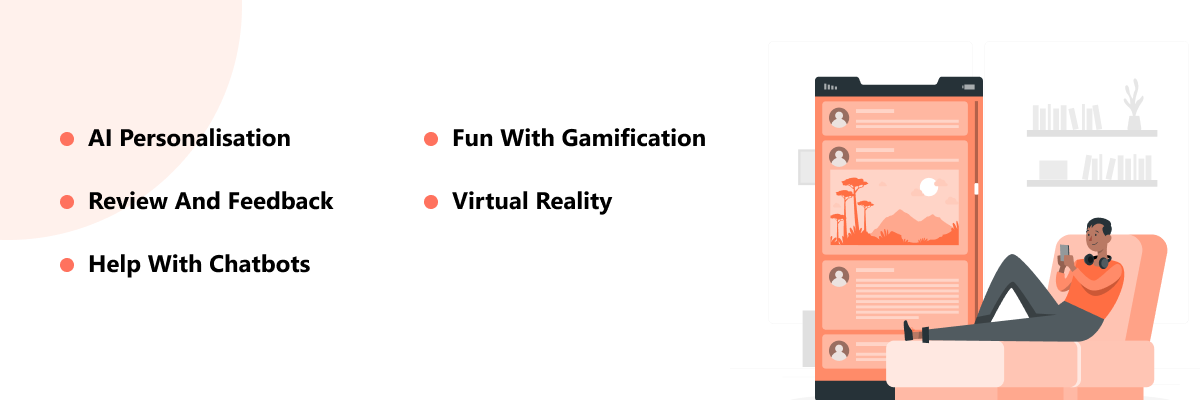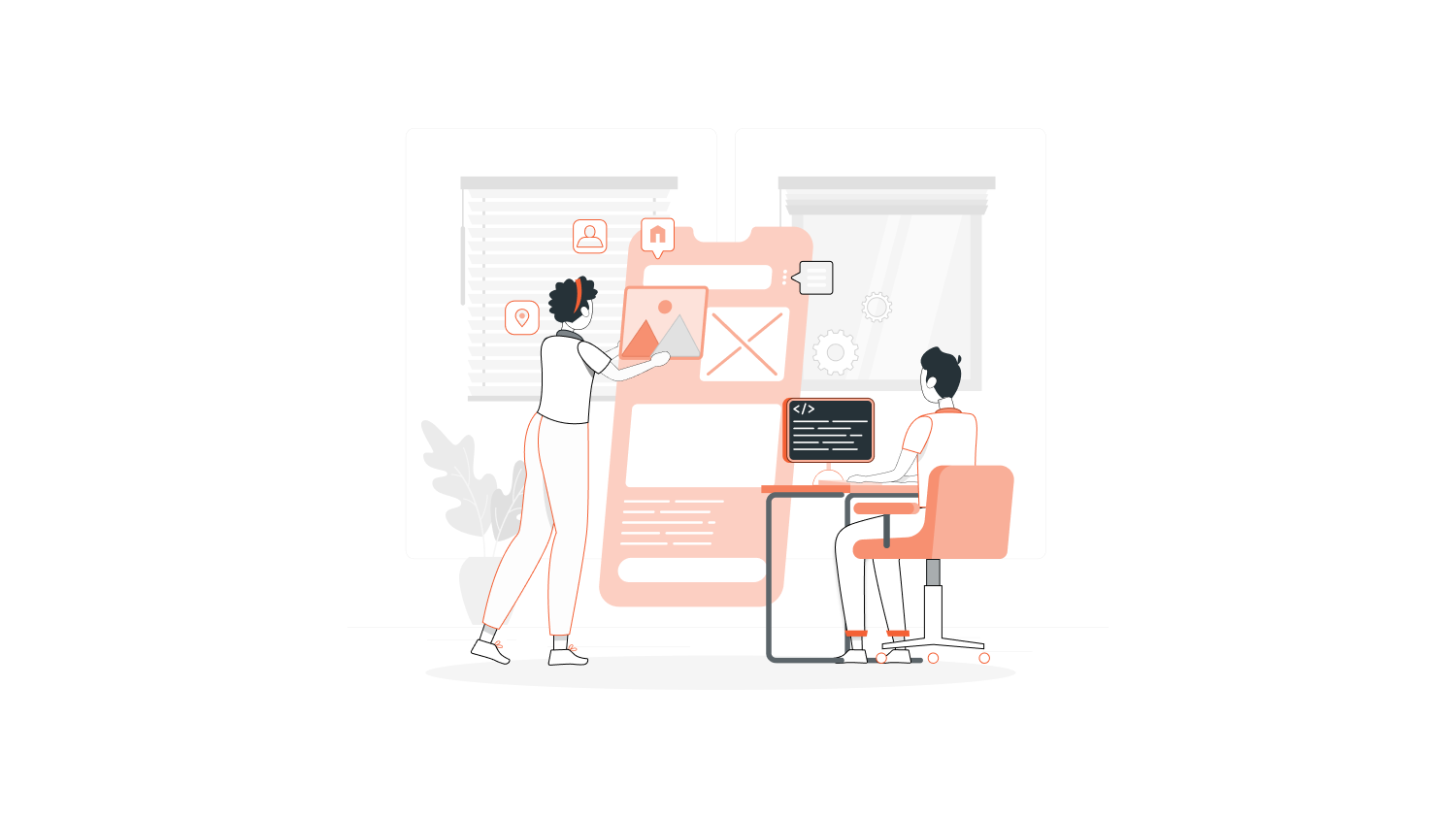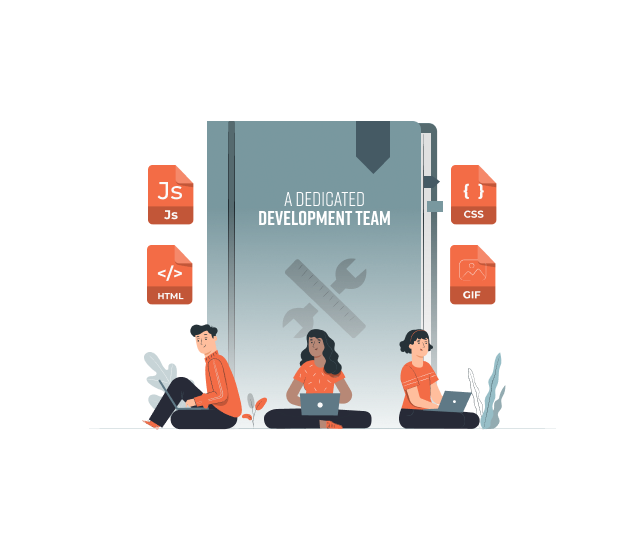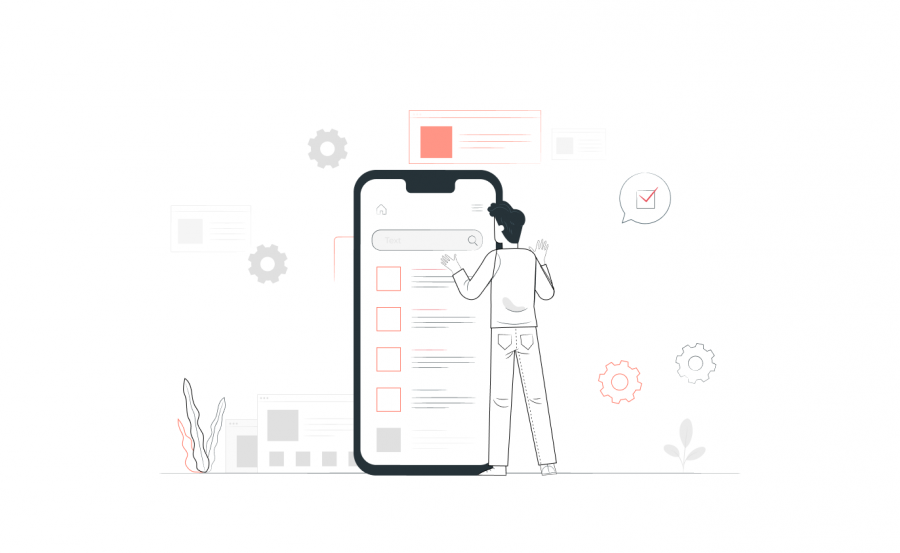From buying essentials to building a multimillion-dollar business, everything is done online today. Likewise, the online version of the education industry – e-learning enterprise is booming high today.
The rising growth of technology, along with a sudden hit of the global pandemic has given a terrific advancement in e-learning progress.
Today you don’t need to go places or study centres to educate yourself. Instead, take your smart device, hone your skill on the go.
Are you a tutor?
Switch on your mobile camera, start recording, post it on an e-learning platform, and start earning.
It won’t be a big surprise that e-learning apps are one of the most popular categories in both App Store and Google Play Store. It is estimated that the E-learning market will be able to reach $275.10 billion in monetary worth by international news organisation Reuters.
If you are here to know more about the E-learning app or thinking of building one, then you are at the right place. So let’s dig in to understand more.
What is E-learning?
E-learning is the short form of electronic learning. The term e-learning is first coined by Elliott Maisie. It means providing the learning or training services through any digital resources.
E-learning provides the ability to learn from anywhere, anytime, and on any device. You can see a 15-year-old developing a multi-million dollar company from scratch. Thanks to e-learning.
E-learning induces a large number of digital sources like apps, web apps, websites that deliver online education like development courses, language courses, certification courses, and more.
E-learning apps are one way of educating and empowering a larger community through smart gadgets.
Why E-learning industry is this popular?
E-learning is one of the fastest-growing industries today. As we said earlier, it can hit a valuation of over 200 million dollars.
From ancient times until today and moving to the future, learning makes us humans. Learning will be the essential thing every human desire to get at any stage of life.
You can educate people on numerous things like personal growth, professional growth, improving specified skills, learning a language, and everything. So learning will be the one industry that never goes out of trend.
Some of the reasons that made the E-learning industry this popular are discussed below:
Smartphones
There are more than 3.5 billion people using smartphones worldwide. Over 600k E-learning apps are available on the App Store and Google Play Store.
With this number of audience available and the number of options provided in the App Store and Google Play Store are one of the main reasons for the sudden popularity of E-learning.
Comfort
E-learning provides the comfort of learning at any place, any time, and on any device. It provides the ability to learn for all the audiences, whether they are students, working professionals, or others at ease of time.
Also, the time consumed for completing the course is 60-80% compared to the classroom courses.
Easy tracking and Personalisation
In the E-learning apps, you can easily track your learning process, like the amount of time you took to complete a course, your daily learning activities.
E-learning apps also provide live interaction sessions and help you to mark the important points in the video to make the learning more personalised.
Affordability
The cost spent on learning any kind of skills in classroom is relatively high while compared to the E-learning platform.
E-learning platforms have the advantage of providing the same video to thousands of people availing the same learning courses. You can watch the video sessions, again and again, to understand the topics more clearly.
These advantages help the e-learning apps to provide the course at a low cost than ever.
Top-notch instructors
With the help of E-learning, people around the world can get lectures taught by top-notch professors from any part of the world.
Let’s go through some points why you should invest in an E-learning app:
- ROI
The return of an investment will be high compared to the traditional classroom methods.
- Future is here
As said, E-learning apps will be the future, adding gamification to the apps on the learning process has gained more learners at the age between 4-16 years.
So e-learning apps will play a major role in the future teaching industry.
- Empower the world
Education along with knowledge empowers the person. If you love to see changes in this world, then invest or build an innovative E-learning app.
Types of E-learning platforms
Now we have gone through what is e-learning and the reasons it become popular. If you have an idea of developing one, then you must be aware of the types of e-learning platforms.
There are 10 types of e-learning platforms, one differs from another in many aspects. Let’s have a look into it.
1. Asynchronous online learning
This type of E-learning provides more flexibility to the learners and it is more student-centred. In this, the student will study independently at different times from different places.
This type is more familiar among students who don’t have flexible timing for studying. This type gives the comfort of studying at their own pace.
It doesn’t involve any real-time communications between students or with teachers.
2. Synchronous online learning
Synchronous learning involves more interactive learning. In this type, learners will be attending the session at the same time from different locations remotely.
It involves more teacher-student communication and peer group communications. Recently synchronous learning method adoption gets rapidly increased in e-learning platforms.
3. Computer managed learning (CML)
Computer managed learning is also referred to as computer-managed instruction (CMI). In this case, the computers will be able to manage and access the learning process of the learners.
This type works based on informative databases. The databases will have information that provides the lessons the student needs to learn, and it also has ranking parameters to determine the result of the learning.
It is a two-way communication between computer and learner.
Also, the educational institutions can store the video lectures, ranking, curriculum, enrolment, learning progress, and more in CML.
4. Computer assisted instructions
This is the second type of E-learning which involves two-way interaction between the learner and the computer.
It involves videos, text, graphics, audio in the learning progress. It makes the learning process an active process, not a passive process.
Many schools have adopted this type in both online and classroom sessions for more involvement of learners.
5. Interactive online learning
As the name says, interactive learning highly concentrates on the interaction between students and learners in the learning progress.
It is one of the most popular types of e-learning because of the high engagement between the participants.
In this, the participants can exchange messages, can do adjustments to the learning materials, learning, or teaching methods.
6. Linear e-learning method
This type doesn’t involve two-way communication. Here, the lectures will be sent to the student and the students are expected to learn from the materials received.
This type of learning will be really limiting, but it provides information and access to study materials and lectures.
Providing lectures through local television channels or on a radio channel is an example of linear learning.
7. Individual online learning
This type of learning allows the students to study on their own and achieve the desired goal.
It is one of the traditional methods followed for a very long time. It also restricts the growth of communication skills as it largely focuses on students learning independently.
8. Collaborative learning
Collaborative learning is the exact opposite of individual learning. A group of students gets together to achieve the learning goal. This is a modern learning methodology.
The group of learners will work together and help each other. This improves a lot of teamwork and communication skills for the learner.
9. Fixed e-learning
Fixed e-learning is more or less similar to classroom learning. The teaching materials involved are the same for all the participants involved in the learning program.
Fixed e-learning is highly pre-determined by the teachers, not student-centric programs.
10. Adaptive e-learning
Adaptive e-learning is the most innovative kind of e-learning.
This method takes account of the skills, ability, goals, characteristics of the learners and adapts the learning program according to the learner.
This supports personalised training programs and is completely student-centric.
How to create an educational app?
So let’s learn how to build a successful e-learning app.
You will need to follow some steps to get the end result.
Step 1 – Validate your idea
Very first thing to do is market research. In this step, research and try to understand the following details like:
- Who will be your potential customers?
- How big is the market?
- Who will be the competitors?
- What features do competitors miss in their products?
Also Read: What Are the Types of Research Methods to Launch a Successful Startup?
Step 2 – Type of software
You should decide what kind of learning app your idea needs. Like it is a mobile application, a desktop app, a web app, or any other. The good part is you can select more than one option.
See if a website or web app or mobile app can remarkably help you level up your business.
Step 3 – List out the features needed in the app
Here you need to list out the features of the app. For example, you can list unique features like the inclusion of AI or chatbots and many more.
Step 4 – Choose the team
Next, you need to start developing your idea into a product. Try to hire skilled developers or an established product development company to create your app. In this stage, you will design, develop and test your app.
Step 5 – Release of your app
In this stage, your app is made available to the users. Here you need to select a platform to deploy your app and release it to the market.
Take a look at the right time to launch your product.
Also Read: How Much Does it Cost to Create an eLearning App like Byju’s
Must-have features for outstanding e-learning apps

There are more than 600K apps present in both App Store and Google Play Store together. And many apps are under development, so to win in a long run you need to be unique, advanced, and simple.
Here, we have listed some upcoming features and technologies that make your app stand out in the crowd.
1. Personalising learning experience with AI
AI can help in tailoring the information provided to every individual learner according to their preferences.
With the use of AI bots, you can show personalised recommendation pages to every single user.
Read: 5 Key Benefits of Artificial Intelligence for Business [with examples]
2. More fun with Gamification
The inclusion of gamification on e-learning apps is proceeding rapidly. If your target audiences are from age of 4-16 then gamification is all you need to make your app more interesting for them.
Very young users and middle-aged users can easily understand the topics and lessons via gamification than the traditional method.
3. Review and feedback
People do and believe what they hear from other users. Having a rating, review, and feedback section for the lessons provided and for the tutor will give new users more confidence to take your courses.
Learners find it easy to choose a course that has more than 4/5 stars from previous learners.
Feedback from your potential customers plays a key role in your app success. To get more potential customers, you need to boost your app marketing game. Learn the app marketing strategies that every startup must know.
4. Feel the virtual reality
360 degree virtual, 3D demonstration, graphic overlays are now and future of learning. In both, the classroom and online sections, learners prefer some virtual reality models to explain the segments for more understanding.
5. Help with chatbots
Automated chatbots are revolutionising every industry possible. Likewise in the e-learning industry, it will be a great help to learners for finding courses, payments, and more.
Also adding some other features like,
-
-
- parents portal
- social media elements
- tracking feature to assess learning progress
- offline services like downloading any courses to study later
- filtering out the courses
- push notification before the start of class
- adding a search bar will be great
-
So, if you add these features along with a very good user experience, then the possibility of succeeding, in the long run, is sure.
Read how apps fail by poor user experience and how to fix it.
How much does it cost to develop an E-learning app?
There are a lot of steps involved in the developing process like UI/UX designing, software coding, testing, Quality testing, deployment, and more.
Some factors that affect the cost of developing an educational app are its complexity, advanced technologies, elements like animations, numbers of features included, and more.
Also, while you develop an app you should build for both android and IOS software.
On considering all the factors, the rough estimate would be between $80k to $150K. But it is advised to create a prototype before building the app.
With a prototype, you can validate your app idea by getting user feedback and also pitch your app to potential investors to scale it to the next level.
Read: 17 Vital Factors Venture Capitalists Evaluate Before Investing in Your Startup
Conclusion
The E-learning industry is the one industry that grew exponentially during this pandemic. Now is the best time to build an E-learning application.
People strive for improvement and love to upskill. So the demand will be always high for good content and certifications. Learners are searching for online courses more than ever.
If you have an idea that provides a unique solution in the e-learning industry, hire a team or choose a product development company with great mobile app developers and start developing your app.
Before investing large, validate your idea, build a prototype, get feedback, improve, update and then rock.
Are you looking to hire a reliable outsourcing partner to develop your amazing app idea?
If so, take a look at the things you should keep in your mind before hiring a technical support team.




